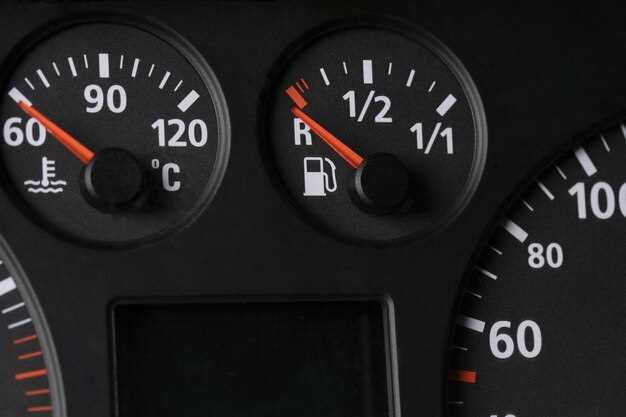
Understanding the vital fluids in a vehicle is essential for maintaining optimal performance and longevity. In European vehicles, several key fluids play a crucial role in ensuring that the engine and other systems operate efficiently. Regular monitoring of these fluids can help prevent breakdowns and reduce repair costs.
Engine Oil is perhaps the most critical fluid to monitor, as it lubricates moving parts, reduces wear, and helps regulate engine temperature. It is vital to adhere to manufacturer-recommended oil change intervals to ensure engine health. Regularly checking oil levels and quality can prevent costly engine damage caused by inadequate lubrication.
Coolant is another essential fluid that maintains the engine’s operating temperature. Insufficient coolant levels can lead to overheating, which can cause severe engine damage. Monitoring the coolant’s condition and ensuring it is at the correct level is vital, particularly during extreme weather conditions.
In addition to engine oil and coolant, brake fluid should not be overlooked. This fluid plays a crucial role in the braking system’s effectiveness. Any contamination or drop in brake fluid levels can compromise braking performance, making regular checks imperative for safety.
Finally, transmission fluid ensures smooth gear shifts and transmission performance. Monitoring its level and condition is important, especially in vehicles that frequently experience heavy loads or towing. Recognizing the signs of deteriorating transmission fluid can prevent serious transmission failures and extend the life of the vehicle.
By keeping a close eye on these key fluids, vehicle owners can ensure their European cars remain in excellent condition, ultimately leading to a safer and more reliable driving experience.
Understanding Engine Oil Quality and Change Intervals

Engine oil plays a pivotal role in ensuring the smooth operation of a vehicle’s engine. It lubricates moving parts, reduces friction, and aids in cooling, thereby extending engine life. The quality of the engine oil directly impacts performance and efficiency.
Oil Quality is determined by several factors, including its viscosity, formulation, and the presence of additives. Viscosity indicates how thick or thin the oil is at various temperatures. It is important to select oil with the recommended viscosity grade suitable for the specific engine, which can usually be found in the owner’s manual.
Modern engine oils often contain synthetic components that enhance their performance characteristics. These synthetic oils offer superior protection and longevity compared to conventional oils, especially under extreme conditions. Additionally, high-quality oils include additives that prevent sludge buildup, enhance oxidation stability, and improve cold-start flow.
Change Intervals refer to the recommended periods between oil changes. These intervals can vary widely based on several factors, including the type of oil used, driving conditions, and manufacturer specifications. Generally, synthetic oils allow for longer intervals, often ranging from 7,500 to 15,000 miles, while traditional oils typically require changes every 3,000 to 5,000 miles.
However, driving conditions like frequent short trips, stop-and-go traffic, and extreme temperatures can necessitate more frequent changes. Regular monitoring of oil levels and quality can help determine the right change intervals for optimal engine performance.
Ultimately, understanding engine oil quality and adhering to appropriate change intervals is crucial for maintaining vehicle health, enhancing efficiency, and preventing costly repairs down the line.
Importance of Coolant Levels for Engine Performance

The coolant is a critical fluid in the engine system, responsible for regulating temperature and preventing overheating. Maintaining optimal coolant levels ensures the engine operates within its designed temperature range, facilitating efficient combustion and preventing damage.
Low coolant levels can lead to overheating, which may cause severe engine damage, including warped cylinder heads and blown gaskets. This not only affects performance but can also result in costly repairs. Conversely, excessive coolant can indicate leaks or other issues, disrupting the balance necessary for optimal engine operation.
Regularly checking and topping off coolant levels is essential for sustaining engine health. It is advisable to use the manufacturer-recommended coolant type, as various formulations may contain additives that enhance performance and longevity. Additionally, monitoring coolant levels helps identify potential issues before they escalate, contributing to smoother operation and better fuel efficiency.
In summary, maintaining appropriate coolant levels is vital for peak engine performance, enhances reliability, and prolongs the vehicle’s life. Regular maintenance checks should be performed to ensure the vehicle operates efficiently and safely.
Brake Fluid Maintenance and Safety Implications
Brake fluid is critical for the safe operation of a vehicle’s braking system. It is responsible for transmitting force from the brake pedal to the brake components, ensuring that the vehicle can stop effectively. Regular maintenance of brake fluid is essential to avoid performance issues and potential safety hazards.
One key aspect of brake fluid maintenance is ensuring that the fluid remains free of contaminants. Moisture can accumulate in brake fluid over time, leading to a decrease in its boiling point. This can result in brake fade, where the brakes become less effective due to overheating. It is advisable to check the brake fluid level and quality periodically and replace it according to the manufacturer’s guidelines, typically every two years.
Additionally, checking for signs of leaks in the brake system is crucial. Leaking brake fluid can lead to a complete loss of braking power, posing serious safety risks to the driver and others on the road. If any leaks are detected, it is vital to address them immediately, as even a small amount of brake fluid loss can significantly impact braking performance.
It is also important to use the correct type of brake fluid as specified by the vehicle manufacturer. Different types of brake fluids (e.g., DOT 3, DOT 4, DOT 5) have distinct properties and are not interchangeable. Using the wrong type can lead to chemical reactions that degrade the system, resulting in costly repairs and diminished safety.
In summary, routine brake fluid maintenance encompasses regular inspections for contamination, leaks, and ensuring the appropriate type is used. Neglecting these aspects can lead to severe braking failures, underscoring the importance of keeping brake fluid maintenance a priority for all vehicle owners.




